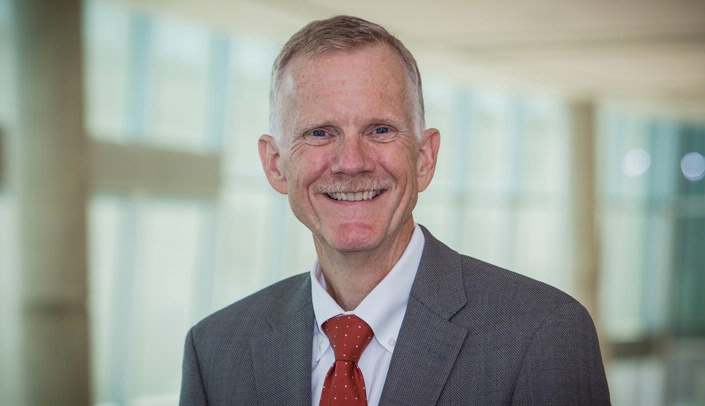An international team of scientists — among them UNMC College of Pharmacy dean Courtney Fletcher, Pharm.D. — this week published a study in the journal Nature, which shows findings that suggest a pathway to a possible cure for HIV-1 infection. The print edition of the journal hit newsstands Thursday.
The work builds upon a 2014 publication in the Proceedings of the National Academy of Sciences, of which Dr. Fletcher was first author, which investigated the question of why, despite being driven to undetectable levels in blood by powerful antiretroviral drugs, HIV is never fully wiped out in patients with the disease. In that study, Dr. Fletcher and colleagues found that a much lower concentration of the drugs made it to lymph node and lymphoid tissues, allowing viral replication — and persistence — of reservoirs of HIV in those tissues.
Finding out why low levels of HIV were hanging on, “for the first time allowed us to have a scientific-based conversation about a cure — is it possible?” Dr. Fletcher said.
This latest study takes it a step further — and finds that while the levels of drug concentration that make it to those tissues are too low to wipe out HIV, the virus also has not developed a resistance to those drugs, as might usually be expected. In the current paper, the authors suggested this is likely because the levels of the drugs are so low, there was no reason for the virus to develop resistance.
“In simple terms, we think there is no evolutionary advantage to have developed a resistance,” Dr. Fletcher said.
And if it has no drug resistance, the scientists may have found a pathway to a possible cure.
“Can we deliver more drug to these tissues and see if we can shut down replication?” Dr. Fletcher said. That’s the next problem to solve.
“Will this cure HIV? No one knows,” Dr. Fletcher said. “But it is a very rational, evidence-based approach.”
Further, “This is a problem that we are extremely well positioned here at Nebraska to address,” Dr. Fletcher said. “We think this problem of ongoing viral replication in lymphoid tissues may be solved by enhanced drug delivery, and that’s something that we here at UNMC are really good at.”
Already, Dr. Fletcher has a significant grant application in with the National Institutes of Health, and he is optimistic that UNMC will be tasked with finding a way to deliver enough drugs to the hard-to-reach places where the last remaining bits of HIV hide out.
“We believe we are one of the few places in the country — with some help from experts in virology around the country,” he emphasized — “to do this work.”
